News
-
 Life
LifeHow plant ‘muscles’ fold up a mimosa leaf fast
A mimosa plant revs up tiny clumps of specially shaped cells that collapse its leaflets, though why isn’t clear.
By Susan Milius -
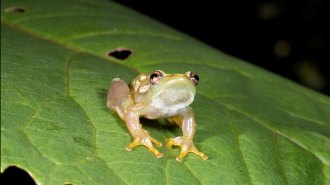 Animals
AnimalsA newfound ‘croakless’ frog may communicate via touch
A newly discovered frog species in Tanzania joins a rare group of frogs that don’t croak or ribbit.
-
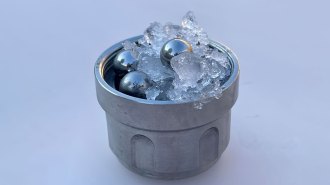 Physics
PhysicsWater is weird. A new type of ice could help us understand why
A newfound type of amorphous ice with a density close to liquid water could help scientists make sense of water’s quirks.
-
 Animals
AnimalsAre your cats having fun or fighting? Here are some ways to tell
Certain behaviors indicate if your cats’ interaction is friendly, aggressive or something in between, a new study finds.
-
 Archaeology
ArchaeologyVikings brought animals to England as early as the year 873
A chemical analysis of cremated remains offers physical evidence of the arrival of Norse animals to England in the ninth century.
By Anna Gibbs -
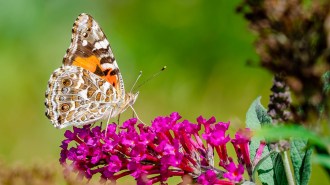 Life
Life76 percent of well-known insects fall outside protected areas
Protected areas can provide safe havens for insects, but many existing ones fall short, a new study finds.
By Freda Kreier -
 Archaeology
ArchaeologyChemical residue reveals ancient Egyptians’ mummy-making mixtures
Chemical clues in embalming vessels reveal previously unknown ingredients used to prepare bodies for mummification and their far-flung origins.
By Bruce Bower -
 Health & Medicine
Health & MedicineThe deadly VEXAS syndrome is more common than doctors thought
The recently discovered inflammatory disease, VEXAS syndrome, typically occurs in men over 50, affecting nearly 1 in 4,000 in the United States.
By Meghan Rosen -
 Physics
PhysicsMuon scanning hints at mysteries within an ancient Chinese wall
Density fluctuations within the ancient rampart encircling the city of Xi’an could be defects or yet-to-be-discovered archaeological finds.
-
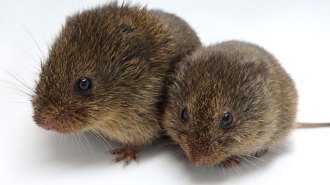 Animals
AnimalsPrairie voles can find partners just fine without the ‘love hormone’ oxytocin
Researchers knocked out prairie voles’ oxytocin detection system. They weren’t expecting what happened next.
-
 Archaeology
ArchaeologyMysterious marks on Ice Age cave art may have been a form of record keeping
Hunter-gatherers during the Ice Age may have recorded when prey mated and gave birth, suggesting that these people possessed complex cognitive skills
By Anna Gibbs -
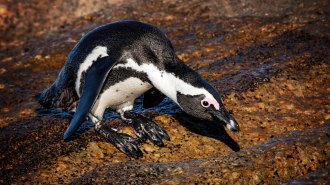 Life
LifeBirds that dive may be at greater risk of extinction
For birds, a diving lifestyle seems irreversible, evolutionarily speaking. The inflexibility possibly increases diving birds’ chances of going extinct.
By Jake Buehler